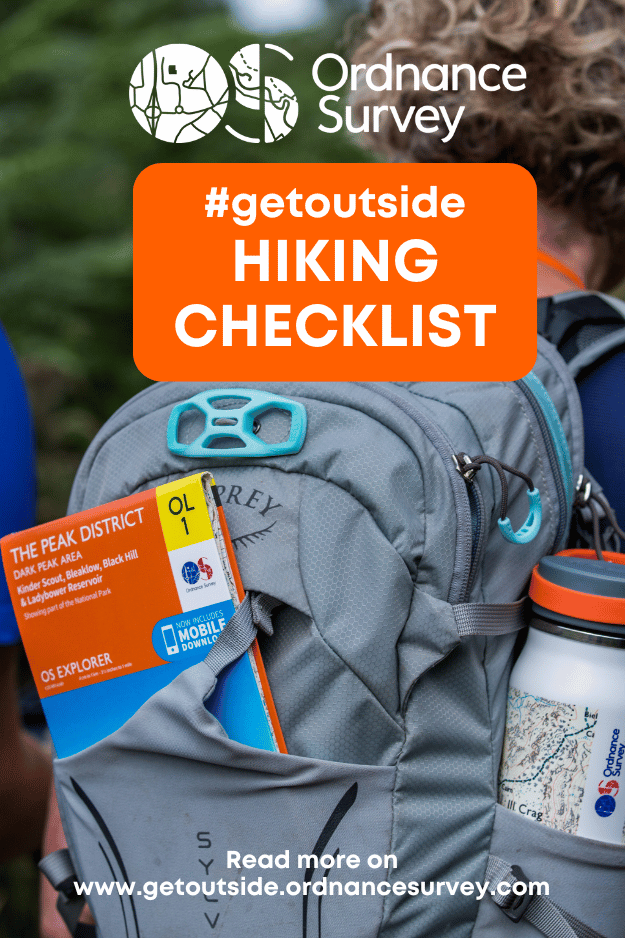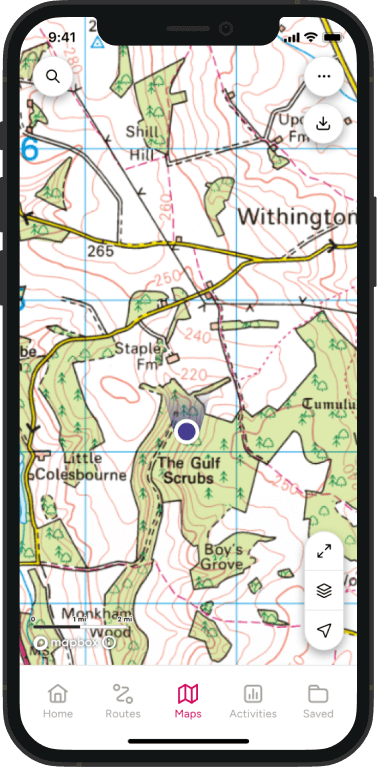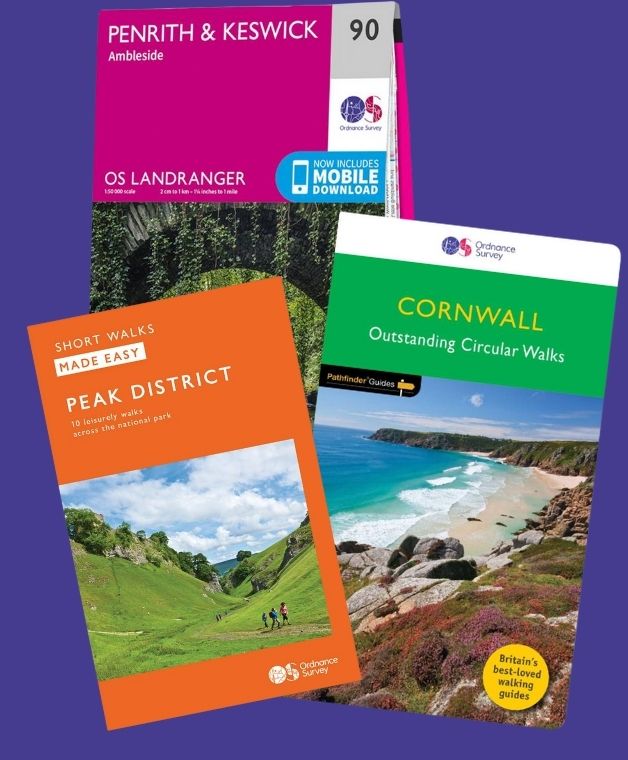Hiking Supplies Checklist
There’s a fine line between having the right equipment to keep you safe and comfortable when hiking and being so weighed down with unnecessary kit you’ll struggle. Our hiking checklist will help you get kitted out with essential gear for a long day on the trail and tell you what to take on a walk. You should also read our Hiking For Beginners post which is packed full of top tips and advice for novice hikers and hillwalkers. The benefits of hiking are backed by scientific research, so make sure you’re fully prepared while you’re out walking.
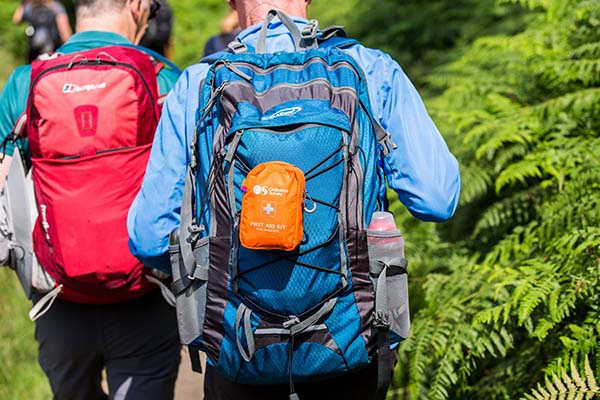
A backpack for hiking
Your backpack should be roomy enough to carry all your required kit but not be bursting at the seams. Depending on the season and the pack-size of your gear, a 20-35L backpack is likely to be sufficient enough for a long day hike. Not only do backpacks come in a variety of different sizes, but there’s tons of features available; from bladder pouches to walking pole holders.
Some additional items that can help organise and protect your pack are:
- Pack liner – An added layer of internal protection if rain is a serious possibility.
- Dry bags – Useful for organisation and protection. These are excellent at keeping kit dry.
- Fitted pack cover – Some packs have these already built in, or you can purchase them separately to specifically fit the size of your pack.
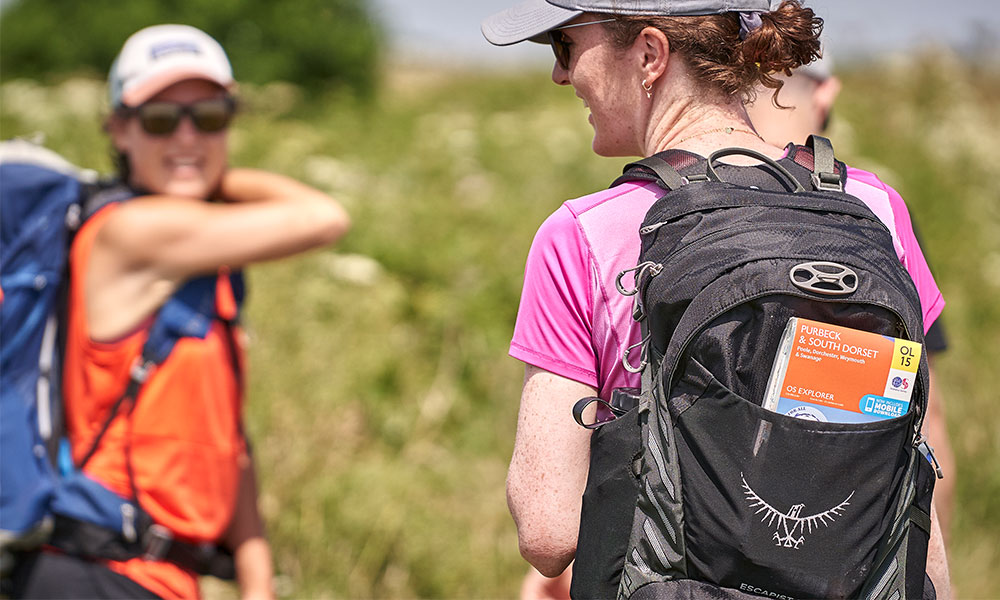
Walking Essentials – What to pack for a day walk
You’re going to be relying on your core kit at both the best and worst of times. Only pack what you need, you don’t want to be weighed down, but do ensure you have all the essentials for a safe, enjoyable hike. The more walks you do, the more you’ll learn about what you do and don’t need.
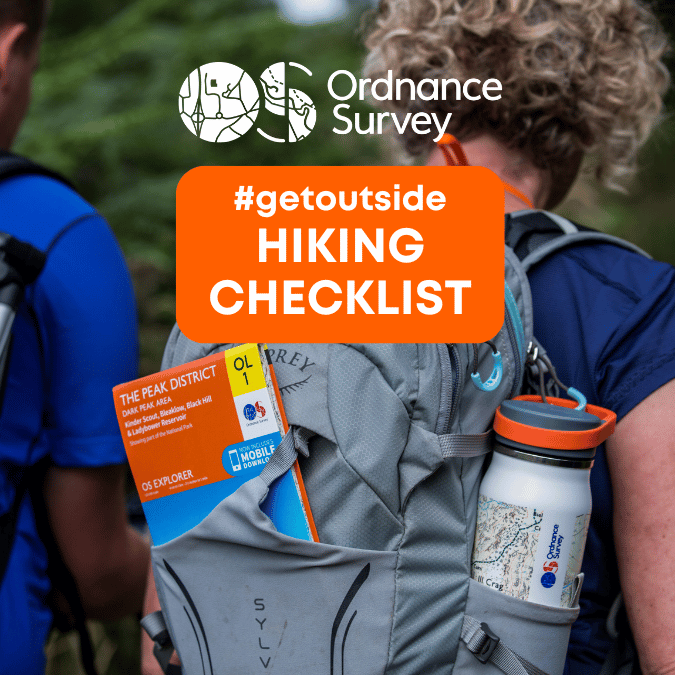
Hiking Checklist
- A map – You may be familiar with the route but it is still important to be prepared. A paper map is essential for both your safety and for the enjoyment of your hike (remember, technology cannot always be relied on so it’s important to have a back up map).
- OS MAPS APP – download the OS Maps app so that you are able to easily locate yourself and plan your route.
- A compass – Weighing next to nothing, a compass is an incredibly important tool to have around. Whether in an emergency or just orienteering your way to your destination, be sure to pack a compass.
- Waterproof map/phone case – You never know when the heavens will open in Great Britain! Be prepared with a waterproof map case and phone pouch which will allow you to navigate in the rain.
- Hydration – A hydration reservoir or a sturdy water bottle sounds obvious but be sure to think about how much water you may require. Dehydration is a commonplace ailment while hiking so always carry more than you require.
- First Aid Kit – Special first aid kits for walkers are incredibly compact and easy to carry. They can be vital in a sticky situation but also make a trip more comfortable (blister plasters, we’re looking at you). You can read our guide to avoiding blisters when hiking here.
- Sunscreen and insect repellent – this is a must in warmer months! Keep those critters away with a decent repellent and choose a sun cream with at least 50 SPF.
- Thermal Flask – If hiking in winter, a thermal flask filled with your favourite hot drink will keep you warm. Equally as handy in summer when you may want to fill it with ice cold water.

EXPLORE THE
OS Shop
We are with you every step of the way. Shop our trusted walking and hiking maps and guidebooks so you can explore the outdoors with confidence.
Go to the shop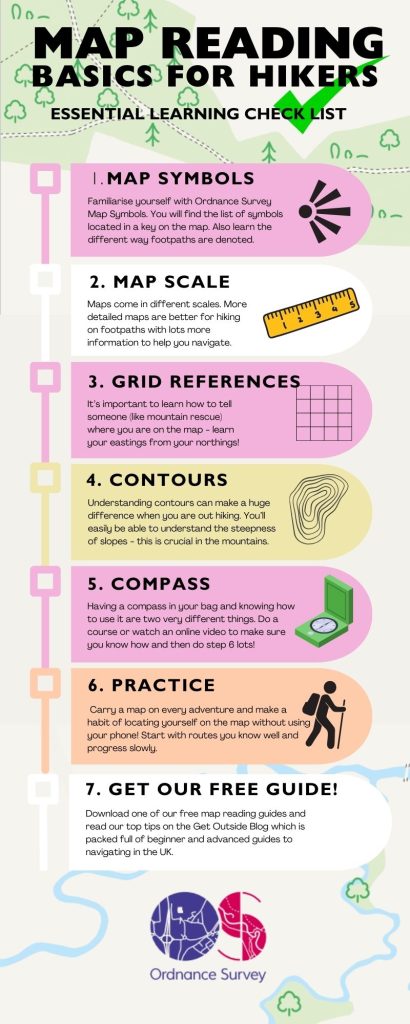
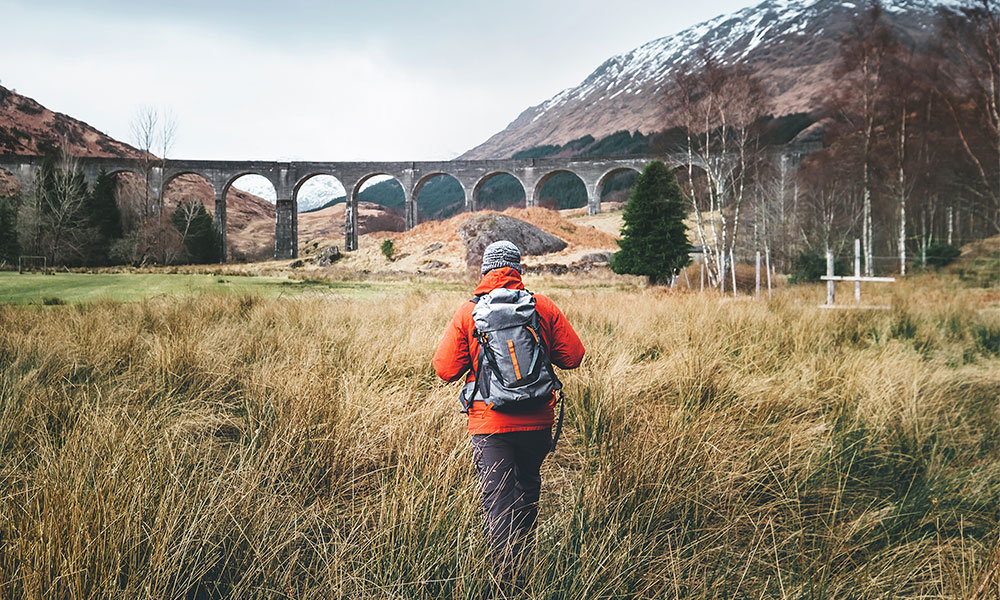
Hiking in the Yorkshire Dales
- Foil blanket – it’s a good idea to keep a thermal blanket at the bottom of your pack for emergencies. It weighs so little you’ll hardly notice it.
- A torch/headtorch – as well as a useful tool for overnight trips, a torch or headtorch is an important piece of safety kit in case you get lost or misjudge your timings.
- Power bank – solar-powered chargers are great for longer trips where you may have limited access to electricity. They are also lightweight and easy to carry, slotting in nicely down the back of your pack.
- Micro towel – whether you’re day tripping or staying overnight, a lightweight micro towel can come in handy. Dry your wet face from the rain, take a bush shower or mop up split tea! For longer trips you may want a larger version.
- Walking poles – fully-adjustable poles are particularly useful if you suffer from sore knees and they come in handy when trying to keep your balance over tricky terrain. Read our complete guide to Hiking Poles.
- Snacks – although not technically kit, snacks still deserve a mention. Having dense, easy to stow, high energy snacks will be necessary if you’re planning on hiking any distance. Summer + chocolate do not work well!
- Cooking gear – you may like the flexibility of being able to eat when, where and what you want. Even if you’re not planning on carrying your stove, coffee maker, gas or bowls, a mug and spork always come in handy, especially if purchasing food and drink from a supermarket.
- Multi-tool – from slicing a fresh baguette to opening a bottle of beer, multi-tools have an array of uses and can help fix up kit and overcome challenges you may experience on the trail.
- Extra clothes – especially if you’re walking in cooler or wetter weather. See our guide to what to wear on a hike below.
If you’re planning a multi-day hike, you’ll need a few extra bits, especially if you want to camp.
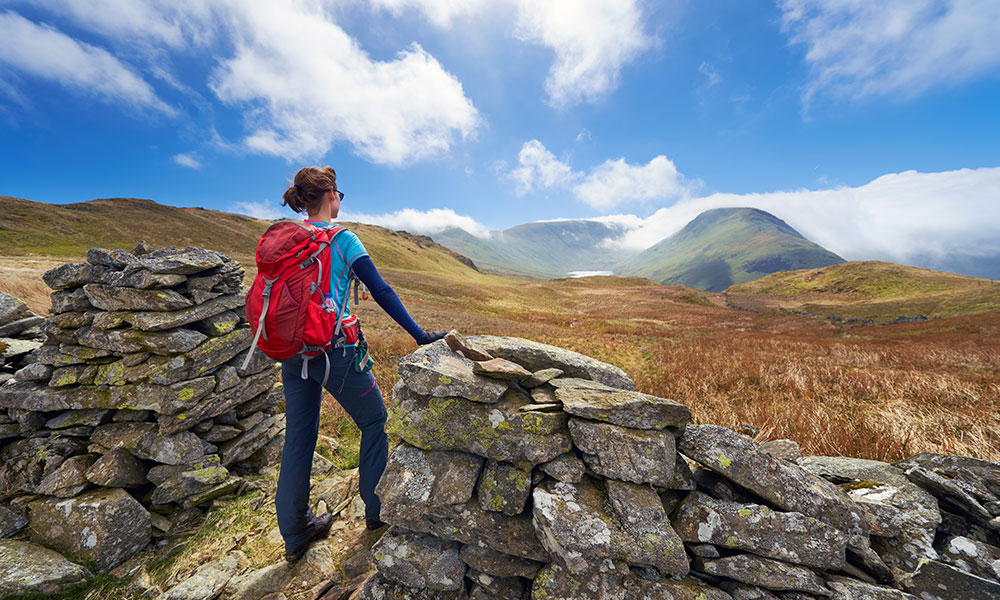
It’s important to carry the essentials when out hiking, especially when you are hiking solo.
Multi-day walking gear
If you’re planning a multi-day hike, you’ll need a few extra bits, especially if you want to camp.
- Sleeping bag – with a sufficient temperature rating for the season you are camping in
- Sleeping mat – self-inflating or foam
- Pillow – we all love our luxuries! If you want to save weight just use your spare clothes. You could take a small pillow case to stuff clothes in.
- Shelter – if you’re camping you’ll need a tent, tarp or bivvy bag.
- Extra food and water – it’s a given. Have at least 500ml-1 litre spare for the night.
- Towel – perfect for drying off after a dip or mopping up spillages
- Shammy cloth – these are great for wiping dew or rain water off your tent in the morning
